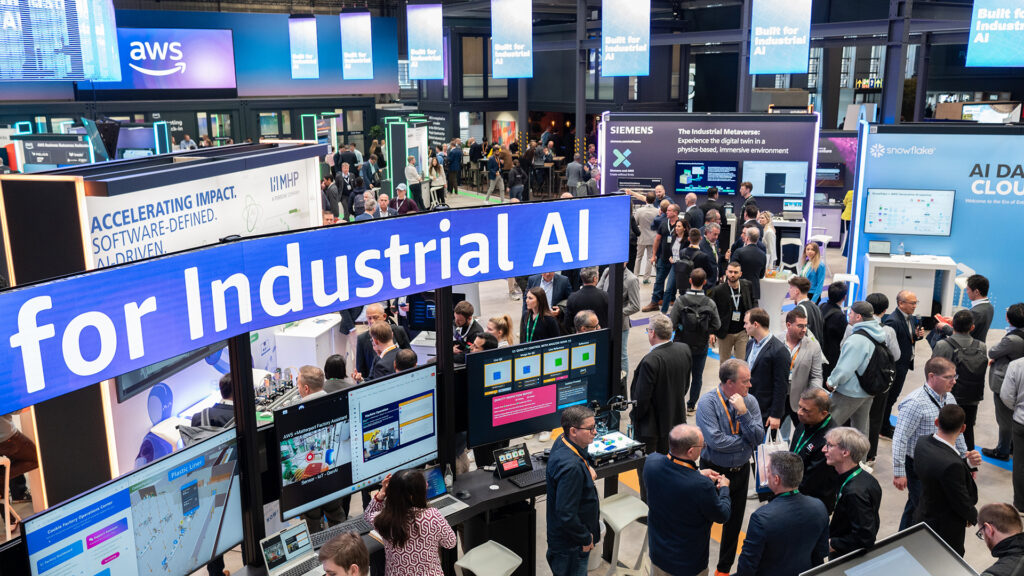Trent University Durham GTA puts people at the center of Canada’s artificial intelligence future. One lesson, one collaboration, one breakthrough at a time.
Artificial intelligence (AI) may be built on code, but it is driven by human decisions. Every dataset reflects the choices, biases, and intentions of the people behind the machines, and every application is a test of our ability to use technology to advance human development.
Canada is now scoring its tests more carefully. In 2025, Ottawa created the nation’s first Minister of Artificial Intelligence and Digital Innovation and launched a 30-day AI Strategic Taskforce to revamp the national plan. This is a clear sign that talent, research and responsible recruitment are valued as priorities at the highest levels of government.
At Trent University Durham Greater Toronto Area (GTA), students and researchers are determined to make the grade. The University believes that the future of AI must not only be measured by technical benchmarks and business benefits, but also reflect the people who learn to carefully shape it. That belief has inspired some of Trent’s most distinctive academic enterprises, including a bachelor’s degree program in artificial intelligence (a first in Canada) and a growing portfolio of research collaborations that extend from the Durham region to international forums.
Trent students aren’t just judged on whether they can write effective lines of code. They are being asked to ask the bigger question: Do we need to apply this tool this way? What values should guide its use? The faculty who teach these students are testing the same high standards and conducting research that explores the applications and limits of AI.
Balancing norms and conscience
At Trent Durham, learning AI is about combining this evolving technology with uniquely human skills. As the only university in Canada offering both BA and BA degrees. In the field of AI, Trent challenges students to balance code with conscience and critical thinking.
The BSc stream provides students with a technical foundation such as coding, algorithms, data systems, and other essential skills needed for an AI-driven economy. The BA emphasizes philosophy, governance and ethics and challenges students to weigh the impact of intelligent machines on society. Students now move back and forth between the two, forming a group that is as comfortable having policy discussions as they are in the lab.

©Oshawa Night
“AI is not just a tool; it reflects human choices and biases,” explains Dr. James Connelly, Professor of Philosophy and Coordinator of the AI Program at Trent Durham University. “Our graduates will not only know how to code, but they will know how to lead the conversation about what responsible AI looks like.”
That spirit of inquiry pervades Trent’s research. Dr. Martina Orlandi, assistant professor of AI, investigates the human side of intelligence and explores how automation impacts our understanding of creativity, decision-making, and purpose. Her research examines ethical gaps in machine learning and explores what it means to begin outsourcing distinctly human abilities such as critical reasoning to artificial intelligence.
“With the advent of AI, we are faced with big questions about what makes life meaningful,” she said. “If machines can take over tasks that were previously thought to be uniquely human, how do we define the value of humans at work and in society? Does making life easier necessarily make life better?”
Outside the auditorium, the danger is clear. Research shows that 57% of Canadians are already using AI tools, younger generations are leading the way in adoption, and 78% of organizations worldwide currently report implementing some form of AI.
pass a real world test
Education at Trent Durham does not develop in a vacuum. Located in the heart of Greater Toronto’s Durham Region, the university’s campus provides a living laboratory where theory and practice meet. Internationally recognized as a Top 7 Intelligent Community, Durham is becoming a hub for logistics and innovation, with warehouses and distribution centers already built for an AI-enabled economy.
For Simon Gill, director of Invest Durham & Durham Tourism, the region’s momentum lies in its ability to adapt. Governments, businesses, and higher education institutions like Trent are already working together to bring AI from the lab to the market.
“We help companies apply deep learning technology to make connections and compete globally,” he said. “The talent pipeline we are building here is already attracting the types of companies that will define the next era of prosperity.”
Durham’s advantages are clear. We offer direct access to Ontario’s busiest highways, deep sea ports, luxury airports and major rail lines. New facilities are designed to integrate automation from the ground up, and Trent students step directly into these environments with technical skills and critical perspective gained from grappling with ethical dilemmas in lecture halls.
In Trent Durham’s Logistics and Supply Chain Management program, Dr. Ali Vaezi prepares students to lead in industries transformed by automation and AI.
“Large companies are reorganizing their teams and relying more on AI,” he said. “When students master these tools and combine them with domain expertise and human insight, employers will see that they are not competing with AI, but augmenting it.”
The program focuses on systems thinking, analysis, and decision-making, training students to turn relevant data into useful insights and actionable decisions for employers in the GTA and beyond, including Amazon, Lactalis, and Martin Brower.

© City of Oshawa
Durham’s leadership in AI emphasizes education as well as innovation. John Henry, Regional Chairman and CEO of Durham Region, points to the region’s higher education institutions as a catalyst for that progress.
“Here in Durham Region, our academic institutions are helping lead the way in AI, equipping our students with cutting-edge skills and driving applied research that addresses real-world challenges,” Chair Henry said. “Trento University’s Artificial Intelligence and Logistics and Supply Chain Management programs are a great example of this. They provide students with the tools to drive innovation in smart manufacturing, automation, and data-driven decision-making.”
Extra credit for collaboration
Trent’s regional and global research collaborations are highly regarded by universities. As the limits of AI are tested, Trent is also working to connect students and faculty across borders and strengthen collective approaches. A notable example is the EaRTH District, a coalition of post-secondary institutions in eastern Ontario focused on energy, environment and innovation.
Through the EaRTH District, researchers are looking to integrate AI into projects that model smart grids, track environmental change, and support climate change resilience. A sector report highlights how AI is already helping with long-term planning and managing grid security restrictions, particularly in Canada’s electricity system. These are the types of group projects where Trent Ethicists can collaborate with other professionals such as engineers, as well as wider industry and government.
No single institution can address the scope of AI. But by working together through initiatives like the EaRTH District, we can build a research ecosystem that is greater than the sum of its parts and has an even greater reputation.
Global exams and local answers
The university’s influence extends far beyond its campus boundaries. At Trento University, we take this challenge seriously. Earlier this year, I joined an Invest Durham delegation to Germany’s Hannover Messe, one of the world’s largest industrial trade shows.
The global momentum surrounding AI is undeniable. AI is moving from experimentation to expectation. If we don’t prepare our students, and ultimately our economy, to lead in this field, we risk being left behind.
The market is also paying attention to the scoreboard. Analysts estimate that the global AI market will reach approximately $1.8 trillion by 2030. Canadian revenues are on a uniquely rapid growth trajectory, with some estimates modeling a 30% annual expansion over the course of the decade. The signals are consistent: adoption is growing and capital is accelerating.
The lessons for Durham Region are clear. If businesses and governments work together with education, they can gain trust in the international market. By enabling graduates to both design and critique intelligent systems, Trent Durham is proving that Canada’s talent pool is not only skilled, but thoughtful.
Final year: humanity above all else
AI is often described in terms of technical benchmarks such as accuracy rate, processing speed, and predictive ability. However, the final exam in the AI era is not about machines. It becomes a story about people.
At Trent Durham, graduates are recognized for their ability to adapt, innovate and ask questions. Faculty are focused on producing research that contributes to industry with technology and ethics with values. At Trent, we rise to the challenge of preparing our students not just for today’s jobs, but for tomorrow’s world.
“AI is not neutral,” Dr. Orlandi says. “It forces us to think about what kind of society we want to build with society. That’s what our students are working on and why they will become better leaders of society.”
Ultimately, AI may assist with tasks, but it does not replace labor. By encouraging ethics, aligning the classroom with research, and applying research to the real world, Trent Durham creates the conditions for students to innovate and shape a future where AI serves humanity. Not the other way around.
This article will also be published in the quarterly magazine issue 24.
Source link

